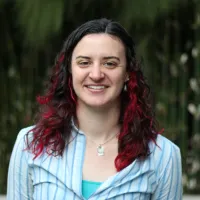Proposed rent increases spark uproar over housing policies
An announcement from campus Housing Services that it would increase rental rates by one-third for long-term residents had some ready to protest last week before school administrators ultimately vetoed the recommendation.
The increase was one of several proposed solutions to housing shortages being recommended by the Housing Advisory Committee. It would have increased rates by 34 percent for students who already had resided in campus housing for more than two years.
With median rental prices at $3,500, San Francisco currently ranks as the country’s most expensive place to live—higher than New York City’s median of $2,800—according to data collected by the rental website Live Lovely.
Demand for student housing has increased in proportion with the dramatic rent increases San Francisco has seen since 2011. There is typically a waitlist of more than 700 people, and each year the housing lottery can accommodate only about 30 percent of demand. Although UCSF’s long-term plans are to build more housing by 2019, that won’t help current students.
“The committee was asked to propose recommendations that would help create spaces for new students,” said Jennifer Rosko, director of student involvement programs and a member of the HAC. “In the absence of additional inventory, the committee brainstormed ways in which to create inventory which gave new UCSF affiliates a place to land and some time to learn more about the city so that when their UCSF housing lease is up, they would have a better understanding of where to look for housing outside the university.”
Before housing term limits were shortened to two years in 2013, tenants had the option of staying in housing indefinitely. Those who were already established in housing under the old rules were subsequently grandfathered in to allow them to remain in their current situation for five and six years. These tenants now occupy more than a third of the available housing inventory, making fewer units available to other members of the UCSF community.
HAC’s recommendation to raise rents on longtime residents by 34 percent would have brought the price of a one-bedroom unit to from $2,309 to $3,002. That price is still lower than market rate in nearby neighborhoods like SOMA, where the median price for a 1-BR is $3650, but higher than further afield neighborhoods like Glen Park where the median price for a 1-BR is $2,700.
“I was shocked when I saw the email,” said Kevin Lance, a fifth-year graduate student in the bioengineering program who has lived in housing since 2011.
Tenants who would have paid the higher rates quickly organized to protest what they deemed unfair rental increases. This included a flurry of letters to the senior leadership and calls to organize further action, mostly coordinated via Facebook.
In a public Facebook posting, Nicole Michael, a fourth-year student in the Tetrad program, echoed the sentiments of many of those affected: “This proposed increase is not only against the spirit of equitable treatment which we should be able to expect from our institution, but is also blatantly punitive.”
However, not all students felt that these increases were unfair. “It’s understandable that they want to encourage people to leave,” said Corey Tan, a first-year BMS student who lives off-campus and couldn’t get into housing. “There’s not enough campus housing in general.”
The final decision from the chancellors came while protestors were in the midst of drafting a petition. In an email to all of housing services, chancellors Dan Lowenstein, John Plotts and Liz Watkins said, “We realize that the recommendation has understandably caused great concern for many of you who would have been impacted, and we deeply apologize for the distress this has caused.”
Rosko said the response showed that the administration is willing to listen. “We’re open to suggestions on how to increase student involvement in policy decisions. I’d like to see the administration and student body [work] together to make the best possible decisions for all students.”
This may not be the last word on housing policy at UCSF. The chancellors are still deliberating on the six other recommendations made by the HAC, including ones to procure additional funding to subsidize housing.
Some who live in campus housing said they would like to have seen more transparency in these decisions. “There wasn’t any tenant participation in any of these decisions,” said Jorge Ortiz–Carpena, a first-year BMS student who lives in housing.
However, Leslie Santos, director of Housing Services, said there were efforts to bring students into the process. “We reached out to the GPSA, and three students volunteered to participate in the HAC. Unfortunately, none of them were current tenants.”
Santos added that Housing Services intends to recruit tenant participation differently in the future.
In adopting future measures, Lance said he hoped the school would “enact policies that don’t sacrifice one group of students at the expense of another.”



